‘Armageddon Time’ Director James Gray Reveals Real-Life Tragic Circumstances Of A Key Character In His Autobiographical Film – Telluride Q&A
- Oops!Something went wrong.Please try again later.
- Oops!Something went wrong.Please try again later.
- Oops!Something went wrong.Please try again later.
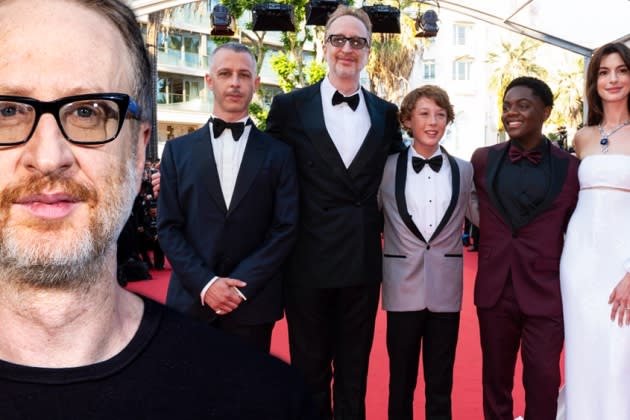
EXCLUSIVE: Director James Gray has revealed to Deadline that Johnny, a pivotal character portrayed by Jaylin Webb (The Wonder Years) in Gray’s autobiographical film Armageddon Time, was killed during a drug deal in the mid-1980s, some six years after we last see him in the movie.
”I loved that kid!” Gray said repeatedly in an interview. “Here’s the thing: I never had a ton of friends. I loved him.”
More from Deadline
Gray explained that Johnny, who was Black, was his closest friend at public school in Queens, New York. He is a major presence in the picture that premiered at the Cannes Film Festival in May. Armageddon Time will receive its North American gala at the Telluride Film Festival today.
Gray’s film is set in Queens and explores a two- to three-month window where Gray, given the fictional name Paul Graff, is 12 years old and attending public school, where he and Johnny bond after being repeatedly picked on by a mean-minded teacher, though both suffer, in varying degrees, from ADHD. Later, Graff’s parents sent him to Kew-Forest, a private school that then a haven for bigots, where students regularly used the N-word, and Fred Trump, father of former President Donald Trump, was on the school’s board of trustees. It must be stated that today much has changed at Kew-Forest, where pupils hail from 65 countries.
Graff is portrayed by Banks Repeta (The Black Phone, Welcome to Flatch) and his parents by Anne Hathaway and Jeremy Strong, though Paul’s closest family relationship was with his grandfather, portrayed with vital honesty by Anthony Hopkins.
The story of Paul and Johnny is told against a backdrop of racial unrest, some of it stirred by the campaign strategies of Ronald Reagan, who was running for president. Gray noted how Reagan kicked off his campaign for president in Philadelphia, Mississippi, where he was “trying to mobilize the race issue in the South.”
Gray had been reluctant to talk about what had become of Johnny, his school friend, on or off the record, when we were at Cannes.
Pushed to do so now, Gray told us that he did not know the exact date his friend was killed.
”I don’t know the exact year because I only learned about it in the early ’90s, several years afterwards,” he said. “He was killed in some drug deal in Jamaica, Queens. I don’t know the details, it would take a bunch of forensics to unearth it, but it can be found if I had the motivation.”
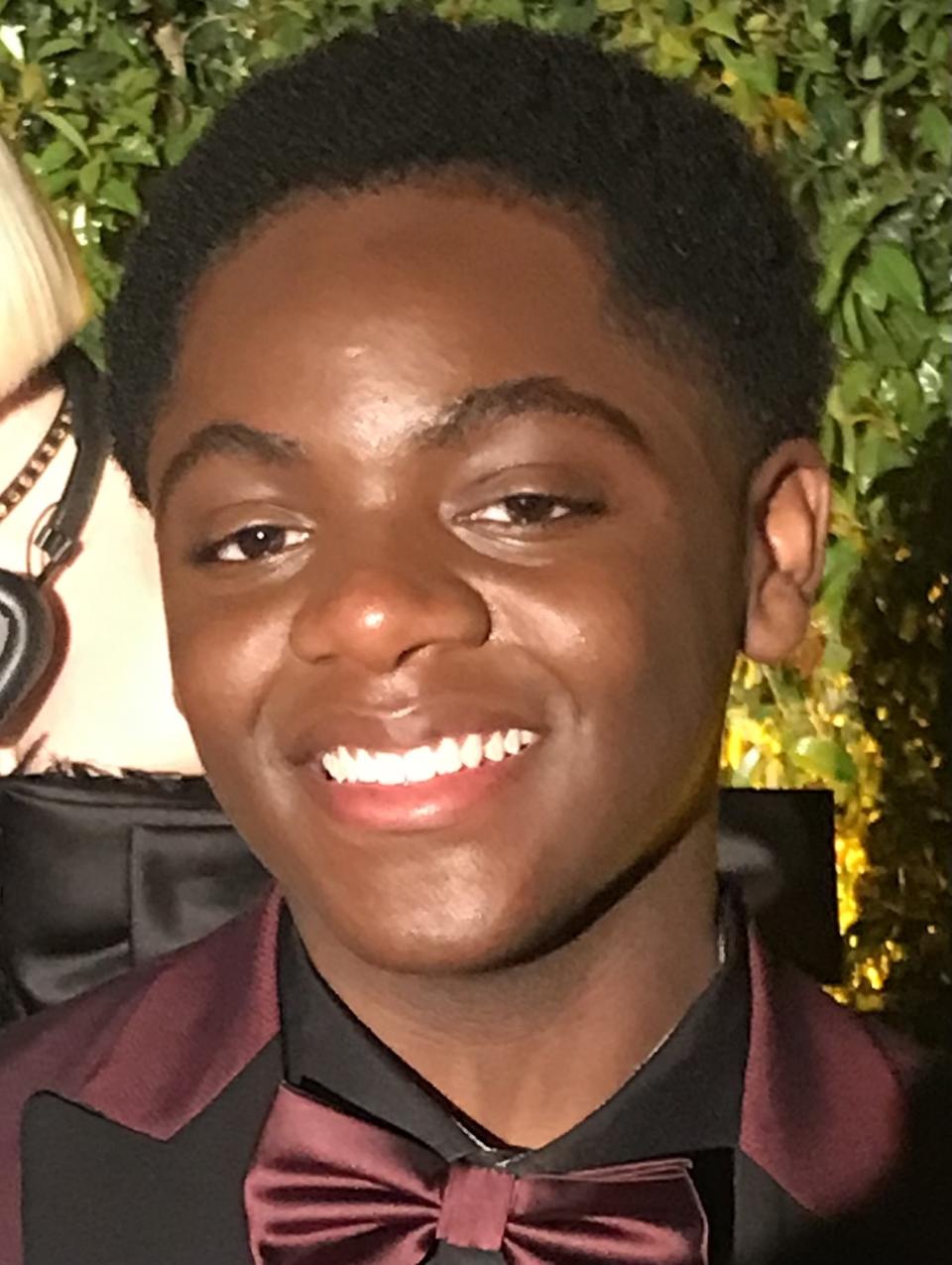
Baz Bamigboye/Deadline.
Can you remember your reaction when you did hear, we asked? “Terrible, horrible. The thing is, I don’t have a ton of regret about losing touch with him; not because I don’t care … because … there were no cell phones back in the ’80s, there was no Facebook, there was no … it was very hard, especially for someone without a landline, and Johnny didn’t have one. I guess I could have gone to his house, but even that wasn’t particularly close. I didn’t have a car; it was very hard as a 12- or 13-year-old kid, unless you got your parents to drive you somewhere. Even then I didn’t know how to get in contact with him because he stopped coming to my house. Today, it’s much, much easier to keep in contact with people. Also, we lose touch with people all the time; it’s part of life.”
Cannes Review: Director James Gray’s ‘Armageddon Time’
The filmmaker stated that the fate of his friend is “connected to a system that had no overriding interest in understanding a student with some learning difference, or a grandmother who he lived with, who had Alzheimer’s. The kid needed help.”
When Gray premiered Armageddon Time at the Cannes Film Festival back in May, it was a work in progress. There was music to finish, sound needed to be “more full and fleshed out,” as he put it, and, crucially, Gray and his sound department hadn’t been able to complete looping all of Hopkins’ dialogue in time for the Palais
There was nothing to be done; Gray took Armageddon Time to Cannes before he could record Hopkins.
The line in question happens during a ghost-like sequence. Just a line of dialogue — six words, in fact, that were to prove heart-stopping. “They’re incredibly important,” Gray said.
”I put them in since Cannes, and Tony says to Paul about Johnny, ‘I guess you let him down?’”
“I’m unhappy that I hadn’t gotten it in in time for Cannes because I felt that it crystallized the kid’s sense of catastrophe,” Gray said. “‘I guess you let him down’ — it was like the scope of what had happened, that it wore on the kid, and that wasn’t there in Cannes.”
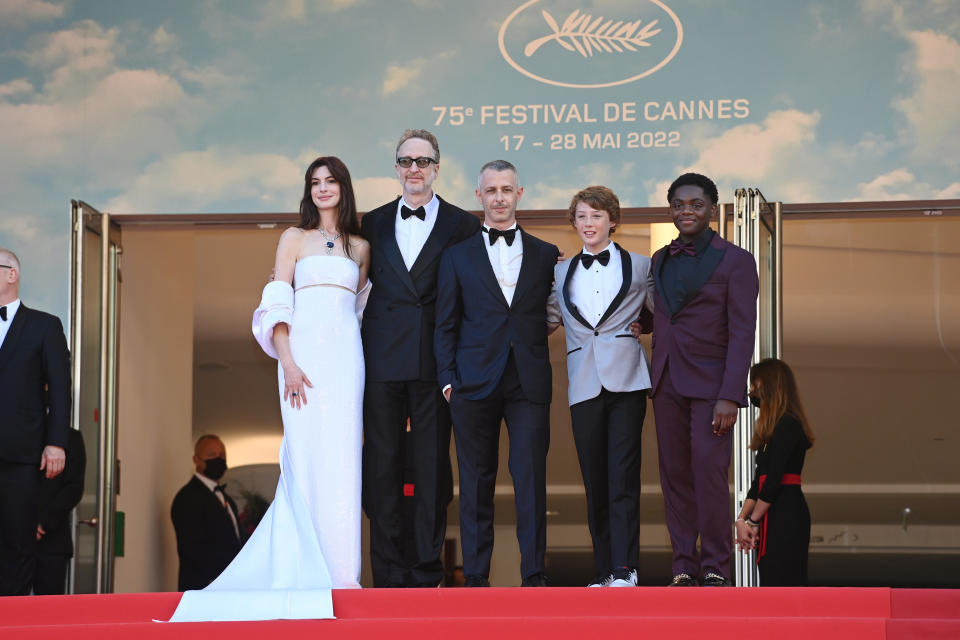
Getty Images
This reporter has seen the completed version of Armageddon Time, with that line delivered, perhaps accusingly, but with an echo of sympathy, by a sort of ghost-like Hopkins to Paul, his grandson, and its impact is shattering.
Asked if Gray felt that he had let his friend down, he responded, “Totally.”
Even now, after all these years? “I loved that kid,” he said, his voice distraught.
”Here’s the thing: I never had a ton of friends. I loved that kid, I loved him. He was gone from my life,” Gray said, now visibly shaken.
He leveled some blame at his parents. “I’ll tell you a major thing that my parents got wrong: They never once said, ‘You’re going to this new place [Kew-Forest]. You lost that friend, you have new ones. Are you OK, are you all right?’”
Gray explained that he understands the notion of throwing Paul in the deep end to make sure he can swim. “Tough, OK. Good,” he said. “But I think you have to check in on your kid and say, ‘Is everything going on OK in the school?’”
In a voice underscored by decades of hurt, he added, ”Not once.”
”He was the only friend I really had in public school. I never saw him again after what you see in the film,” the filmmaker said. “That was considered to my benefit, right? I was hanging with a better group, supposedly. They never asked me how I was, really, not once. I was adrift. I struggled. I survived, I think, because, frankly, I was funny. I was an ugly kid, but I was funny.”
Deadline noted that Repeta, who portrays him in Armageddon Time, can hardly be termed ugly.
”I know, but that’s the movies,” Gray said. “A beautiful version of yourself.”
Deadline had a long Zoom conversation with Gray. Here’s more of what we discussed:
DEADLINE: What were you able to comprehend about race and Ronald Reagan in 1980, when you were, what, age 11 or 12?
JAMES GRAY: Reagan used barely coded language to use race to help him win. I wasn’t aware of it as an 11-year-old. I wasn’t, but I was. Like, you somehow absorb the drippings of it, you somehow got the sense that something wasn’t right. Maybe it comes from my parents. My parents were well-intentioned, but they had issues. I suppose I can’t blame them for it; they did the best they could given the set of circumstances, but they still had their issues. They did try. My middle name, for example, is Marshall, named after their god, Thurgood Marshall, the first Black person on the Supreme Court, so they obviously had some good intentions. But they were mixed up. I look back on it now, and I have some clarity on it.
DEADLINE: Your film resonates with a sense of urgency about your country.
GRAY: You look at the seeds of this and it’s all there, and it’s not an edifying story. There’s not a lot of positivity you gain from it. By the way, may I use this dirty word — artistically? I don’t think it’s artistically a flaw, but it’s not feel-good, it’s troubling.
DEADLINE: This is autobiographical, and you chose the path of honesty — not to dress it up as sunny.
GRAY: Let’s just say this: I tried to make it as honest as I could and in some ways hold myself responsible as much as I could. You don’t have distance because you’re in it. I tried to say … in some sense it’s the opposite of what we might call virtue signaling where I say like, “I’m a great person and I’m so good that I made it.”
To me, the process that any creative person has to go through of any meaning is not to promote an idea that is rosy or pleasant or a lie, but rather to promote something that is as honest as possible because that’s where honest dialogue and debate can begin. I can’t have a discussion with you if I say, “I’m a terrific guy and my life was terrific and nothing bad ever happened to me.” OK, if that’s true, what the hell are we talking about, right? Everything’s good.
I was brought up in an environment where the cinema was the thing that after the movie, you discussed it with your friends, and I can’t talk about something where everything goes right. I was just trying to be as honest as I could. I don’t know if this makes any sense.
DEADLINE: It does. I suppose what I was also asking is this: Were you under any pressure to make it sunnier?
GRAY: You always feel pressure, even if people don’t say it, because, let’s be candid here, the sunny thing is a more immediately sellable idea. It’s easier to make something which is not troubling; that doesn’t gin up some really ugly stuff because after the movie, you know … you get in a good mood, you want to buy something, have a barbecue. If something is unpleasant, it lingers, it has a different impact on you. Now, I think that’s the cinema that lasts longer. That’s the cinema we make for time. But it’s a harder sell. Now, the studio in this case, it was Focus Features; they were absolutely magnificent to me. They left me alone but also encouraged me. They brought up a few things, but very little. They understood what the point of what it is I was trying to express was. They’ve been wonderful partners. I have no complaint about that. But you do hear the internal critic worrying at times: Is it too much?
DEADLINE: Would your parents have voted for Reagan that year?
GRAY: No, no they didn’t. Not in a trillion years. They regarded him as a ridiculous person. However, my memory of it was that they were unhappy with President Carter. Obviously he’s a beautiful man, but was an ineffectual leader and the Iran hostage thing, and interest rates … a lot of it wasn’t his fault. I know they thought Reagan was a ridiculous person. They used to make fun of him when he was on the TV. It’s like it’s depicted in the film; my father would say, “What a schmuck.”
You know, I don’t think they actually said Reagan is a bigot; they would never say that. But I think there was a quiet understanding that something was definitely wrong in that way. I know they thought that.
DEADLINE: I understand your parents wanting you to get what they hoped would be a better education at this posh school — you weren’t receiving an education at public school. But I must ask you if they did not want you to mix with Black kids?
GRAY: They never discouraged it. I can’t say they did. They incorrectly diagnosed my moral decay, if you can call it that as a 12-year-old boy. They diagnosed my behavior as if I was, like, under the influence of some Black, underclass kid. I remember my mother having that kind of early-’60s liberal thing where she sort of encouraged it [mixing with Black kids] in a way. My father was just sort of disconnected. It’s as depicted in the film. They would say: “Did you hang out with some Black kid?” which is obviously racist. But it wasn’t an active … in some ways actually worse. Right? There’s a kind of racism that’s sort of underneath it all, but it was not an overt thing. No, like I said, I was very lost as a kid, and I felt unheard. I think that’s what led to my not paying attention at school. I was a screwup in many ways, and I think they incorrectly saw that as the “influence of negative …”, that sort of thing.
DEADLINE: Yet you did become friends with Johnny. He had your back more than a couple of times.
GRAY: He was a great kid. I look back at it now … he was obviously a very intelligent kid, but also, obviously, he was very impatient in class and stuff. And today there might have been a real ability to modulate that, or get some help. I’m sure I have a little ADHD. It was like a machine. Everybody was pushed through the system that didn’t give a sh*t about the individual. I think he was the victim of that. I was less of a victim of that because I had better circumstance to help me. But, you know, the point of all this is that the system of oppression is not an obvious one. In other words, it’s not like the bigot comes in a Klan hood. Sometimes people can be both oppressors and oppressed at the same time. You can be the victim of anti-Semitism at the same time you perpetuate or further the idea of privilege. So I was trying to illustrate this idea that there is a multi-faceted aspect to the idea of privilege, and also of oppression. That it is not as clear cut as the good group and the bad group. It doesn’t exist like that. It’s why I had Johnny say — as unpleasant as it is to hear — I had him use the R-word to describe the special-needs kids on the third floor at school. Because everybody, everybody … puts somebody else in a group and can demean them.
So here we are, a family of Jews, and we certainly did get anti-Semitic remarks and stuff, without question. So there was that. But our way to combat that was also a way to double down on our limited area of privilege. So oppression and privilege are complex; it’s not a clear-cut thing. The racist doesn’t always come in the Klan hood.
DEADLINE: That’s true. Sometimes they’re right in front of you.
GRAY: Today we’re very sophisticated. … My kids, for example, they’re unbelievably sophisticated in ways that I am not in discussing — ideas of ethnicity, of gender, race, LGBTQ; I mean, totally sophisticated and that’s great. But they are also, I notice, very poorly educated about issues of class and how capitalism figures into oppression. My own education, my own background leads me to believe that capitalism has a lot to do with — not everything, obviously — the serious problems that we have as a culture. I don’t have the answers, it’s not the point of artists to have answers. It’s only our job to point things out. All of these issues I tried to weave into the movie.
DEADLINE: Those pupils at Kew-Forest back in 1980 are pretty despicable in their casual use of racial epithets.
GRAY: They were actually worse than that. They weren’t just racists. What they said about girls; how they’d cheat on every test they took. With regards to the N- word used in Armageddon Time, I refused to get rid of it because I didn’t want to erase history. I can’t depict the people in that environment … I can’t rewrite a more pleasant, nicer version of what those kids were. What I won’t do is sanitize or get rid of aspects of the history. To me, that’s dangerous. I have an obligation to remember the stuff that isn’t so beautiful.
DEADLINE: Your comment reminds me of people who want to rip out books, movies, TV shows from out of the past that some deem to be offensive now.
GRAY: Cutting out, editing out anything that might be offensive, that’s like Stalinist. That’s crazy. Contextualize, educate … I don’t understand that at all. Our moral standards could change in 30 years and all of a sudden we start getting rid of things we do today, and how would that feel?
I don’t know, I don’t know. I don’t have answers. I don’t know what the hell to do. I’m sure I’m wrong 80 percent of the time.
DEADLINE: Just going back to your old private school for a moment. I see that its student body boasts ethnic roots from 65 different countries.
GRAY: Can I tell you something: The school is totally different now. One of my closest friends is the Latin teacher there. It’s so completely different.
[At this point James Gray shows Deadline a 1987 yearbook and there’s a shot of Fred Trump and other Kew-Forest school board trustees. “A bunch of old white guys.”]
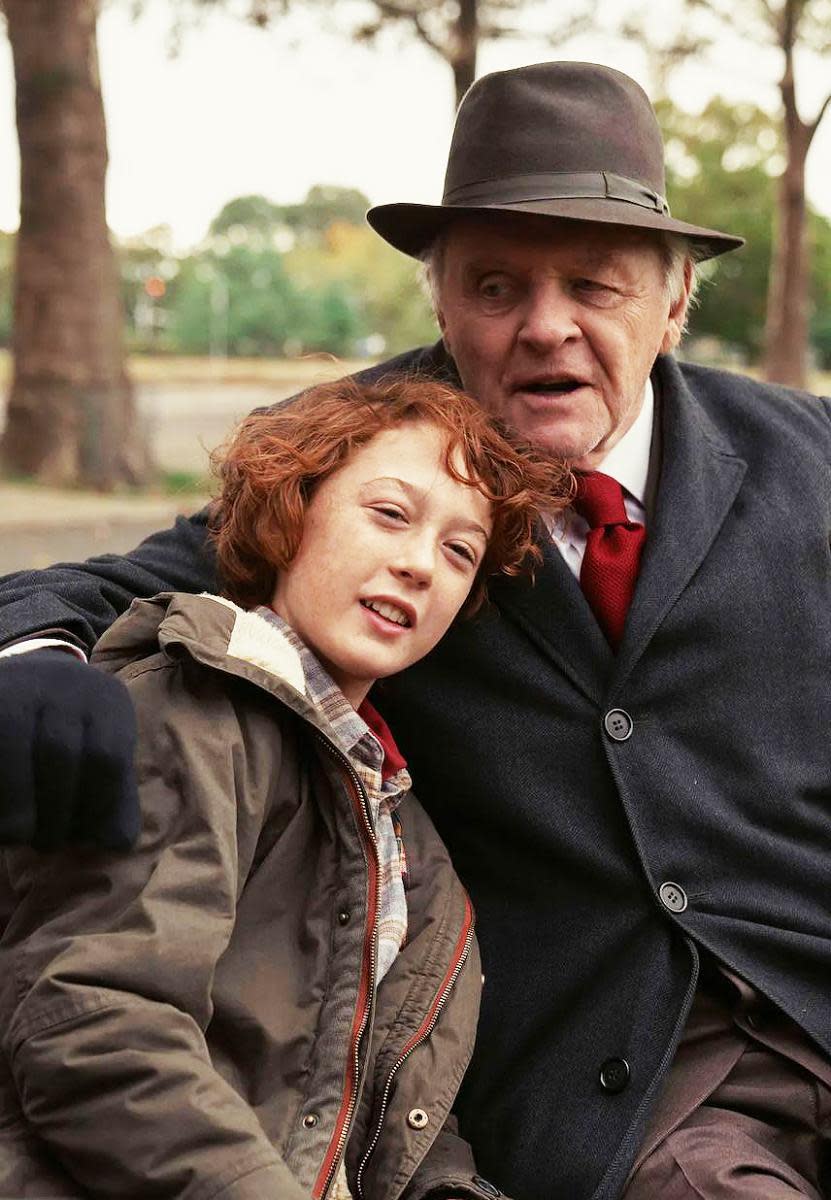
Focus Features
DEADLINE: James, quickly before we both have to scoot. The cast …?
GRAY: What Anne [Hathaway] and Jeremy [Strong] do is very brave because they don’t look great. I don’t even mean physically, though Anne was willing to have this done and that done and there’s padding. What I mean is that they’re not 100 percent likable people in the movie, and it takes some guts, it does. Particularly for someone like Annie, who has a reputation as like a comedian, a beautiful woman in movies and stuff. It’s a pretty unflattering performance, I think. I think she’s fantastic in it. I fell in love with the cast.
DEADLINE: In the film, your grandfather, played by Anthony Hopkins, says to Paul, “Don’t be nervous, be bold.” And as Paul is you, did your grandfather say that?
GRAY: Yeah, he did he said it all the time. He also said: “Work hard, take risks. That’s what artists do.” He was a very lovely guy, and Tony really captures him; he was a very urbane guy. I have a certain resistance to the stereotyping in movies of, you know, the Old Jewish Grandfather … with the big nose, you know, this is stereotyping and my grandfather was not like that. He was very much like Tony, a delicate and urbane guy.
DEADLINE: Super-duper, I’ll see you up in the mountains in a few days.
GRAY: Are you coming?!
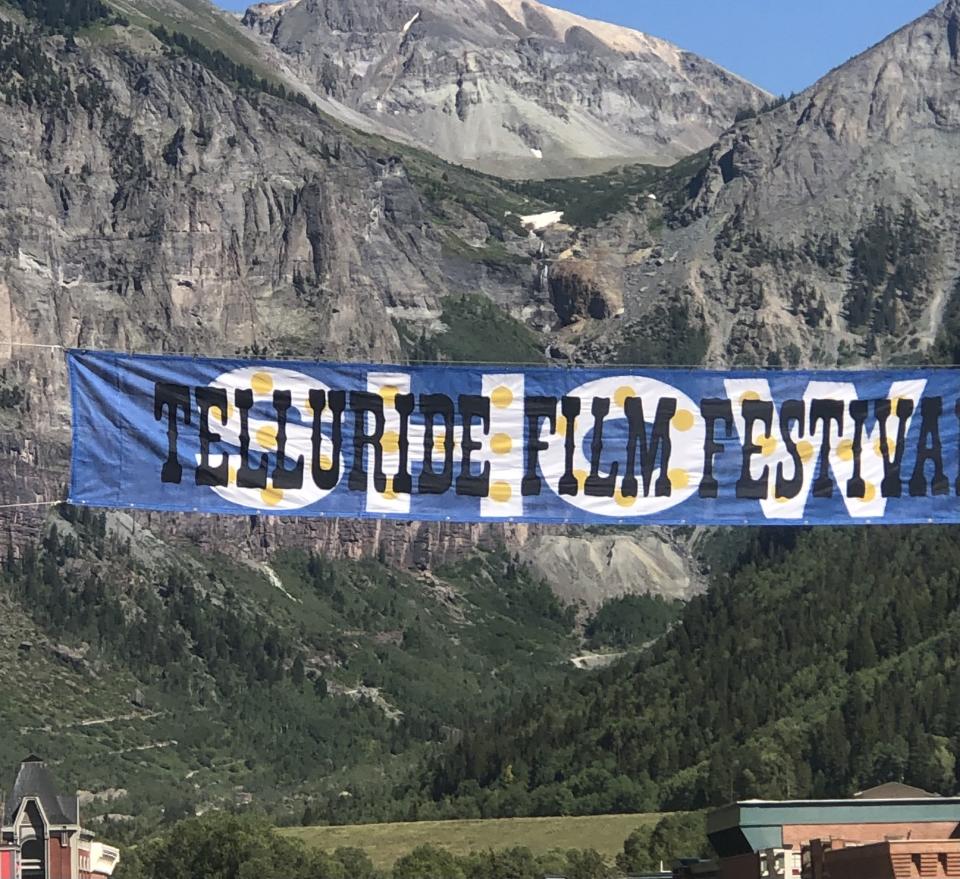
Baz Bamigboye/Deadline
DEADLINE: I love Telluride, yeah. I’ll be up in the Rocky Mountains. It’ll take me week to get there from London … I kid you.
GRAY: You know, I’ve never been. No, I shouldn’t say that. I’ve been three times but not with a movie. I did this Q&A for Francis Coppola for Apocalypse Now some years back. I loved talking with Francis and Walter Murch and those guys, and then I did something for Marion Cotillard.
But I’ve never actually brought a movie there. The times have never worked out, and all that stuff. But now … I’m really nervous and don’t know what I expect at all. You worry about the people of Colorado watching your work and go, “What is this crap?”
Best of Deadline
Sign up for Deadline's Newsletter. For the latest news, follow us on Facebook, Twitter, and Instagram.

